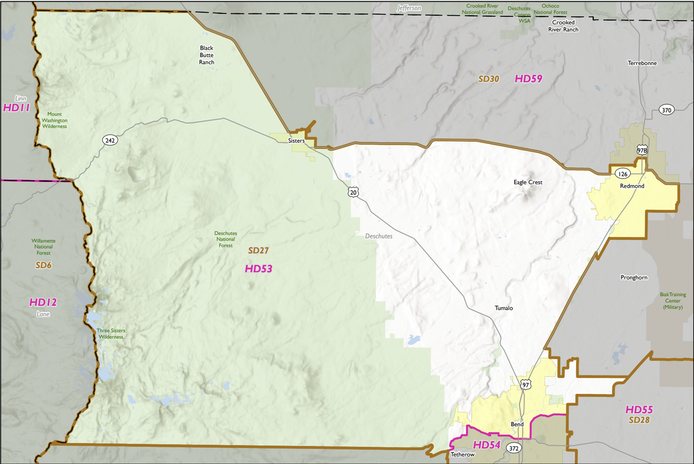Achieving Your Impossible Goals
As seen in Cascade Business News - 06/07/2023
Any reader of this publication has likely engaged in a variety of goal setting exercises and practices over the years. In the course of that, you’ve probably heard it said that your goals should be SMART goals. SMART is an acronym for Specific, Measurable, Actionable, Realistic and Time-Bound. There is nothing inherently wrong with this way to set goals…especially small goals. However, it is severely limiting when your ambitions are high, and you are considering goals that might seem impossible.
All of us have goals. Most of them are relatively small – call them incremental improvement goals. Small, incremental goals are essential to progress. Someone might decide to lose five pounds in the next month. That’s a fine, incremental goal, but I doubt anyone would consider it an impossible goal. Contrast the goal of losing five pounds to the goal of one of my 45-year-old friends. He decided to transform his “dad- bod” into that of a competitive, medal winning body builder in 90 days. This might not be a goal for you, but I think most of us would consider it a pretty daunting, if not impossible objective. However, in only three months, my friend transformed himself into a ripped, 2%-body-fat, third-place winner in his first big competition. The impossible became possible.
As seen in Cascade Business News - 06/07/2023
Any reader of this publication has likely engaged in a variety of goal setting exercises and practices over the years. In the course of that, you’ve probably heard it said that your goals should be SMART goals. SMART is an acronym for Specific, Measurable, Actionable, Realistic and Time-Bound. There is nothing inherently wrong with this way to set goals…especially small goals. However, it is severely limiting when your ambitions are high, and you are considering goals that might seem impossible.
All of us have goals. Most of them are relatively small – call them incremental improvement goals. Small, incremental goals are essential to progress. Someone might decide to lose five pounds in the next month. That’s a fine, incremental goal, but I doubt anyone would consider it an impossible goal. Contrast the goal of losing five pounds to the goal of one of my 45-year-old friends. He decided to transform his “dad- bod” into that of a competitive, medal winning body builder in 90 days. This might not be a goal for you, but I think most of us would consider it a pretty daunting, if not impossible objective. However, in only three months, my friend transformed himself into a ripped, 2%-body-fat, third-place winner in his first big competition. The impossible became possible.
|
I don’t know what your impossible goals might be. They are different for us all. But I do believe that deep in the heart of each of us is divinely planted an ever-evolving inkling, a dream, a desire, an unformed vision, an un-realized passion of who we are capable of becoming and consequently of what we are capable of achieving. If we were to try to articulate it, which we might be reluctant to do, it would probably seem scary...maybe even terrifying. We'd likely call it "impossible." But what if it's not? What if all things are possible...even the impossible?
|
I do believe that deep in the heart of each of us is divinely planted an ever-evolving inkling, a dream, a desire, an unformed vision, an un-realized passion of who we are capable of becoming and consequently of what we are capable of achieving. |
Let’s look at why SMART goals are useful for achieving incremental progress, but may not be so smart for establishing and achieving impossible goals.
As noted above, the first letter of the acronym stands for Specific. If you have an incremental goal to grow revenue 10%, then specificity is not only possible, it’s essential, in order to focus the leader and the team on that outcome. In contrast, I’m on the board of a company with a goal to connect the entire world on a completely re-imagined secure digital platform. I guess one could say that “entire world” is specific, but I doubt anyone would consider it a small, incremental objective. My point is, impossible goals have an element of fuzziness, because they are so large and have never been done before. But that very lack of specificity can spur enthusiastic pursuit. It’s not just a goal, it becomes a grand quest.
The second letter of the acronym stands for Measurable. Incremental goals should definitely be measurable. But what kind of measurability do you think there really was for one of my friends and clients who, as a single Caucasian woman, ventured alone to launch an unfunded mission to save, feed, clothe and school all the orphaned children in an HIV decimated part of Africa, a day’s travel from any city? Impossible goals defy measurement, except in hindsight. My friend just “went for it,” without the limitations of specific numbers. The story of her success would warm your heart.
The third letter stands for Actionable. Action is certainly required to accomplish goals. For incremental goals, such as a 10% growth in revenue, there are many potential pathways for action. Take your pick and then execute. Impossible goals, however, rarely have lots of obvious pathways. That’s part of what makes them intimidating - not knowing what to do. There may only be one path that works. Discovering that path is part of the adventure, and that’s something that makes the pursuit of impossible goals exhilarating.
The fourth letter stands for Realistic. Realism works for small goals. By definition, impossible goals are not realistic. They are above, beyond and outside the bounds of normal. They are unbelievable. Think about some of the incredible innovations of our time: digital music, AirBnB, Uber, Artificial Intelligence, self-driving vehicles and many more. In the beginning, these goals were anything but realistic. In fact, “realistic” people scoffed at the impossible goals of the dreamers. And yet, look what happened. Realistic goals are fine for building incremental confidence. Impossible goals, however, electrify the soul, produce inspiration and magnetize support.
The final letter of the acronym suggests that goals should be Time-bound. I agree, the incremental improvement of a product or service or the completion of a discrete task should be time-bound. Setting a deadline to complete your tax return makes sense. However, impossible goals defy time limits. For example, I’m on the board of NewEachMorning.org, a nonprofit organization that serves women graduates of alcohol and drug addiction recovery programs. Our goal? To help as many women as we can, wherever we can, for as long as it takes.
As noted above, the first letter of the acronym stands for Specific. If you have an incremental goal to grow revenue 10%, then specificity is not only possible, it’s essential, in order to focus the leader and the team on that outcome. In contrast, I’m on the board of a company with a goal to connect the entire world on a completely re-imagined secure digital platform. I guess one could say that “entire world” is specific, but I doubt anyone would consider it a small, incremental objective. My point is, impossible goals have an element of fuzziness, because they are so large and have never been done before. But that very lack of specificity can spur enthusiastic pursuit. It’s not just a goal, it becomes a grand quest.
The second letter of the acronym stands for Measurable. Incremental goals should definitely be measurable. But what kind of measurability do you think there really was for one of my friends and clients who, as a single Caucasian woman, ventured alone to launch an unfunded mission to save, feed, clothe and school all the orphaned children in an HIV decimated part of Africa, a day’s travel from any city? Impossible goals defy measurement, except in hindsight. My friend just “went for it,” without the limitations of specific numbers. The story of her success would warm your heart.
The third letter stands for Actionable. Action is certainly required to accomplish goals. For incremental goals, such as a 10% growth in revenue, there are many potential pathways for action. Take your pick and then execute. Impossible goals, however, rarely have lots of obvious pathways. That’s part of what makes them intimidating - not knowing what to do. There may only be one path that works. Discovering that path is part of the adventure, and that’s something that makes the pursuit of impossible goals exhilarating.
The fourth letter stands for Realistic. Realism works for small goals. By definition, impossible goals are not realistic. They are above, beyond and outside the bounds of normal. They are unbelievable. Think about some of the incredible innovations of our time: digital music, AirBnB, Uber, Artificial Intelligence, self-driving vehicles and many more. In the beginning, these goals were anything but realistic. In fact, “realistic” people scoffed at the impossible goals of the dreamers. And yet, look what happened. Realistic goals are fine for building incremental confidence. Impossible goals, however, electrify the soul, produce inspiration and magnetize support.
The final letter of the acronym suggests that goals should be Time-bound. I agree, the incremental improvement of a product or service or the completion of a discrete task should be time-bound. Setting a deadline to complete your tax return makes sense. However, impossible goals defy time limits. For example, I’m on the board of NewEachMorning.org, a nonprofit organization that serves women graduates of alcohol and drug addiction recovery programs. Our goal? To help as many women as we can, wherever we can, for as long as it takes.
|
By now, it’s probably becoming apparent that impossible goals become visionary and missional. Incremental goals…SMART goals…have value along the journey, but they do not have the power to inspire greatness of character or greatness of achievement. If you spend all your time working in the trenches grinding away at “reasonable” goals, you might be SMART, but you’ll miss the joy of chasing (and likely achieving) the impossible.
|
By now, it’s probably becoming apparent that impossible goals become visionary and missional. Incremental goals…SMART goals…have value along the journey, but they do not have the power to inspire greatness of character or greatness of achievement. |
As Walt Disney said, “It’s kind of fun to do the impossible.” Nelson Mandela put it this way, “It’s always impossible…until it’s done.” And, finally, as the poet Robert Browning said, “If a man’s reach does not exceed his grasp, then what’s a heaven for?”
So…what’s your next impossible goal? And when will you release yourself to pursue it?
Michael Sipe is a local business coach and mergers and acquisitions advisor. 10xgroups.com and CrossPointeCapital.com
So…what’s your next impossible goal? And when will you release yourself to pursue it?
Michael Sipe is a local business coach and mergers and acquisitions advisor. 10xgroups.com and CrossPointeCapital.com
(to help elect Michael Sipe, Republican Candidate for Oregon House District 53)



